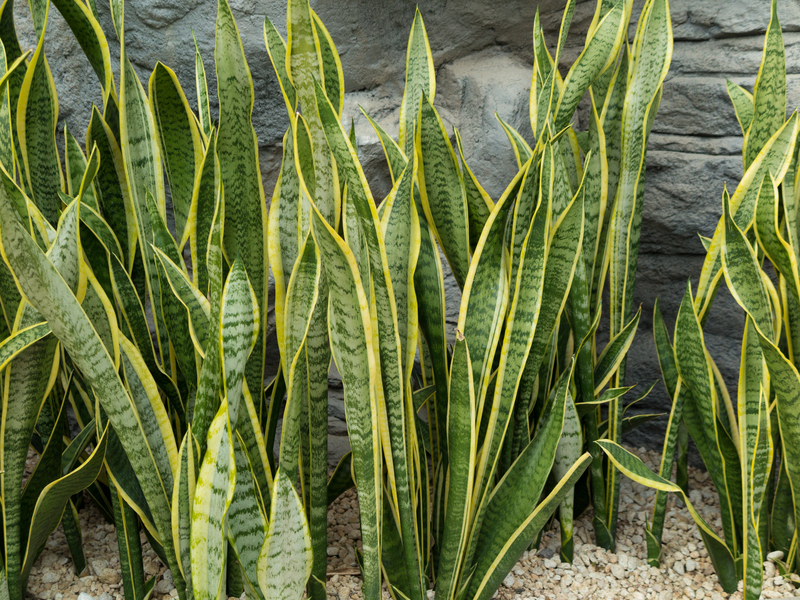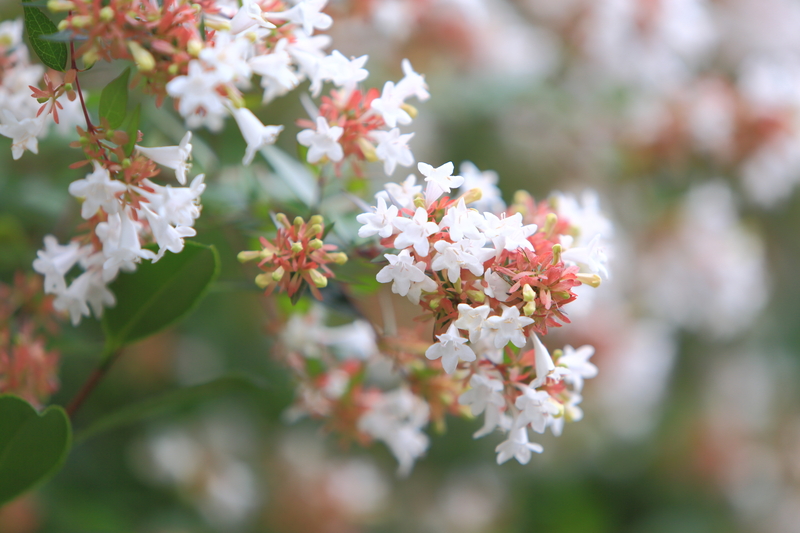Nurturing Green Thumbs: 9 Essential Tips for Aspiring Gardeners
Posted on 19/08/2025
Nurturing Green Thumbs: 9 Essential Tips for Aspiring Gardeners
Are you fascinated by the vibrant world of gardening and yearn to cultivate your own thriving oasis? Whether you're a complete beginner or have dabbled in horticulture before, becoming a successful gardener requires more than just planting seeds. Developing a green thumb takes patience, knowledge, and a little bit of dirt under your nails! This comprehensive guide covers nine essential gardening tips every aspiring gardener needs to nurture healthy plants and cultivate their gardening skills.
Let's embark on this leafy journey together!
1. Understand Your Local Climate and Garden Zone
The first step towards gardening success is to know your environment. Gardeners must understand their USDA Hardiness Zone or local equivalents, which classify geographic regions based on average minimum winter temperatures. Knowing your zone helps you select plants likely to thrive in your area, minimizing heartache and wasted effort.
- Research your zone: Search online using your zip code or ask at a local garden center.
- Adapt plant choices: Choose species specifically suited for your climate, accounting for rainfall, heat, sun, and frost dates.
Tip: Take note of your garden's microclimates (spots warmer or cooler due to fencing, paving, or shade). Adjust planting accordingly for even more tailored results.

2. Prepare and Nurture Your Soil
A healthy garden starts underground. The foundation of every lush garden is rich, well-cared-for soil. Plants need the right balance of nutrients, structure, and drainage to flourish.
- Test your soil: Acquire a simple soil test kit to analyze pH and fertility levels, or send a sample to your local cooperative extension office.
- Add organic matter: Mix in compost, well-rotted manure, or leaf mold to improve fertility and structure.
- Avoid compaction: Never walk on freshly prepared beds; use garden paths and stepping stones to keep the ground light and aerated.
Poor soil isn't the end--most soils can be dramatically improved with consistent care!
3. Choose the Right Plants for Beginners
Not all plants are equally easy to grow, especially for those new to gardening. Start simple to cultivate confidence and gain experience.
- Easy veggies: Radishes, lettuce, green beans, and cherry tomatoes are forgiving for first-time gardeners.
- Resilient flowers: Marigolds, zinnias, cosmos, and sunflowers offer vibrant displays with minimal fuss.
- Low-maintenance shrubs and herbs: Lavender, rosemary, sage, and boxwoods thrive with basic care.
Choose both annuals and perennials to establish a dynamic garden that evolves year by year.
4. Master the Art of Watering
*Water is life*, but too much or too little is a common stumbling block for new gardeners. Understanding how, when, and how much to water is crucial.
- Water deeply, not frequently: Soak the soil to encourage deep root growth, rather than shallow, surface watering.
- Morning is best: Water early in the day to reduce evaporation and protect plants from fungal diseases.
- Check moisture: Stick your finger an inch into the soil--if it's dry, it's time to water.
Remember: Container plants tend to dry out faster than those in the ground and may require more regular checks.
5. Learn the Principles of Sunlight
Every gardener needs to become a sun sleuth! Plants need light for photosynthesis, but different species have unique requirements.
- Full sun: 6+ hours of direct sunlight--think tomatoes, roses, sunflowers.
- Partial sun/partial shade: 3-6 hours of sun, ideal for lettuce, spinach, and impatiens.
- Shade: Fewer than 3 hours of sunlight. Ferns and hostas flourish here.
Track sun patterns in your yard throughout the day and season. Match plants to locations based on their light needs.
6. Feed and Mulch for Strong Growth
*Plants, like people, need food*. Fertilizers and mulches work together to boost plant health, soil quality, and weed prevention.
- Organic fertilizers: Compost, fish emulsion, or balanced slow-release granules work wonders for most gardens.
- Mulching: Add a 2-inch layer of organic mulch (wood chips, straw, or shredded leaves) around plants. Mulch conserves moisture, regulates temperature, and suppresses weeds.
- Time nutrients wisely: Feed most plants in the early growing season. Avoid late-season fertilization, which can lead to weak, frost-vulnerable growth.
Healthy soil and mulch are the secret weapons of experienced gardeners.
7. Stay Ahead of Pests and Diseases
All gardeners--no matter how diligent--face the challenge of pests and diseases. Proactive management helps keep your garden lush and productive.
- Monitor regularly: Inspect plants for discoloration, drooping, or holes in leaves. Early detection is key.
- Introduce beneficial insects: Ladybugs, lacewings, and praying mantises are natural pest predators.
- Use barriers: Row covers and netting protect young plants from insects and animals.
- Practice good hygiene: Remove plant debris and fallen fruit to prevent diseases from spreading.
- Opt for organic treatments: Use neem oil, insecticidal soaps or baking soda sprays when necessary.
A healthy ecosystem in your garden is your best defense against most problems!
8. Prune and Deadhead for More Vigorous Plants
Pruning isn't just for experts. Regular pruning and deadheading stimulate growth, improve shape, and enhance flowering or fruiting.
- Deadheading: Remove faded or spent flowers to direct energy into new blooms rather than seed production.
- Prune for structure: Cut back overgrown branches in shrubs or perennials to encourage bushier growth.
- Sanitize tools: Always clean your pruners to prevent spreading disease between plants.
Don't fear the shears! Pruning is a key gardening skill that pays big dividends.
9. Patience, Observation, and Continuous Learning
The final--and perhaps most critical--tip for aspiring gardeners is embracing patience and curiosity.
- Gardening is a journey: Not every seed will sprout and not every plant will thrive. Learn from setbacks as much as successes.
- Observe and adapt: Keep a garden journal to track planting dates, varieties, weather, and outcomes for future reference.
- Connect and study: Join local gardening clubs, participate in online forums, and read reputable gardening guides to expand your green skills.
"To plant a garden is to believe in tomorrow." Each season is a new opportunity to grow--both plants and knowledge.
Bonus: Gardening Tools Every Beginner Needs
- Hand trowel and fork: Essential for digging and weeding.
- Pruning shears: For deadheading and light pruning.
- Watering can or hose with spray nozzle: Keep plants hydrated with ease.
- Rake and hoe: Helpful for prepping soil and clearing beds.
- Gardening gloves: Protect hands from thorns and dirt.
Investing in quality basic tools makes gardening more comfortable and enjoyable.

Frequently Asked Questions for Beginner Gardeners
What are the easiest plants to start with?
Lettuce, radishes, marigolds, zinnias, and herbs like basil or mint are beginner-friendly. These starter plants are resilient, forgiving, and offer quick rewards.
How often should I water my garden?
Most gardens benefit from deep watering once or twice per week. Always check soil moisture first and remember that weather and plant types affect water needs.
When is the best time to start a garden?
Spring is the classic season. However, in milder climates you can garden almost year-round. Consult your regional frost dates for best planting times.
How can I keep weeds at bay?
- Mulch heavily to block sunlight from weed seeds.
- Hand weed regularly while weeds are small and easier to remove.
- Use landscape fabric in pathways for extra suppression.
Conclusion: Cultivate Your Green Thumb with Confidence
Becoming an accomplished gardener is a journey of discovery, delight, and growth--both for you and your plants. By following these 9 essential gardening tips, you'll lay the groundwork for a rewarding relationship with your garden.
- Know your local climate and garden zone
- Prepare and nurture rich soil
- Pick easy-to-grow plants
- Master watering techniques
- Study sunlight patterns
- Fertilize and mulch effectively
- Prevent pests and disease naturally
- Prune for health and aesthetics
- Embrace learning and persistence
With time, observation, and passion, anyone can nurture a blooming green thumb! So grab your trowel, roll up your sleeves, and watch the wonders of nature unfold in your own backyard.
Happy gardening - your green adventure awaits!
Latest Posts
Vertical Gardening: A Green Revolution for Urban Dwellers
Orchid Care Essentials for Beginners
Must-Have Gear for Every Gardening Adventure
Seasonal Shield: Prepare Your Plants for Winter's Harshness
Transform Your Garden into a Fort with These Severe Weather Protection Tips

